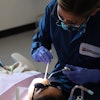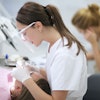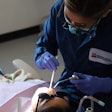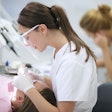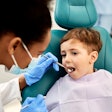
The midlevel provider model has sparked heated debate in the U.S. dental community. But throughout the discussion, one voice has been conspicuously missing: that of the patients.
A new British study (British Dental Journal, January 2010, Vol. 208:1, pp. 16-17) sheds light on this issue by examining public opinion about the dental therapist model.
“Patients will be concerned about the safety of care provided by these therapists.”
— Jamie Sledd, D.D.S., past president, Minnesota Dental Association
The study, which investigated public awareness and social acceptability of dental therapists in the U.K., found that while more than half of the participants felt that getting treatment from dental therapists is acceptable, significantly fewer were willing to have them treat children and one-fifth were not willing to receive any treatment from them at all.
Study findings
Thomas Dyer, B.Ch.D., professor at University of Sheffield's school of dentistry, and his colleagues conducted a telephone survey of 1,000 U.K. adults older than 18. Of the 1,000 participants, 486 were male and their mean age was 47 years.
Among the study findings:
- More than 10% of the participants said they were aware of dental therapists as a professional group.
- Of those who had heard of a therapist (104), 38 (36.5%) thought that therapists were able to extract deciduous teeth, and 69.2% thought that they could administer local anesthetic. No participant correctly identified all the permitted duties of dental therapists.
- Having received information on the role of therapists and their training, 61.3% of participants said they would be willing to receive simple restorative treatment, while 20.4% said they would not want to receive any treatment from them.
- Overall, participants regarded dental therapists providing care for children as less acceptable. Fewer participants found dental therapists providing fillings (54.7% versus 61.3%) and administering local anesthetic (58.1% versus 68.5%) for children as acceptable, when compared to receiving treatment themselves. More than half of the participants found dental therapists extracting deciduous teeth to be unacceptable.
- Thirty-nine percent of participants expected to pay the same for treatment provided by dental therapists, but 48.2% said they would expect to pay less.
- Those receiving some private treatment were more likely to find treatment provided by dental therapists unacceptable for themselves and for children.
- Male participants, younger participants, and those with perceived treatment need were more likely to find having a tooth restored by a therapist acceptable.
"This study confirmed that the awareness of dental therapists and their permitted duties is low across the U.K.," the authors wrote. As a result, it is clear there is a need for education and reassurance of the public on dental therapists, they concluded.
The U.S. model
With some U.S. states developing their own midlevel care provider models, will similar concerns arise?
Jamie Sledd, D.D.S., past president of the Minnesota Dental Association (MDA), thinks they "absolutely will." Although dental therapists are not yet working in Minnesota, the legislation to create the model was passed last year, and the first class of therapists started training last fall.
"Patients will be concerned about the safety of care provided by these therapists and whether they are being appropriately supervised by a dentist," Dr. Sledd said. "The MDA worked hard to address the key areas of concern and developed principles and a model that protects patient safety."
To the best of her knowledge, no research is available in the public arena regarding public knowledge and acceptance of dental therapists in the U.S.
It is important that these providers receive proper education, be adequately supervised by a dentist, and are an integral part of the dental team, she added.
"Ultimately, the dentist will be responsible for the care," she said. "Dentists need to learn how to work with this new model."
But Lynn Ramer, president of the American Dental Hygienist Association (ADHA), does not feel the study findings are cause for much concern.
"When patients realize that this practitioner has received a proper education from an accredited institution and is licensed to perform dental procedures, their concerns should be alleviated," she said.
Because the model is new, she is not aware of any research on the public perception of midlevel dental care providers in the U.S. But she said she feels confident that patients will accept treatment from an educated, licensed practitioner such as the one proposed by the ADHA.

